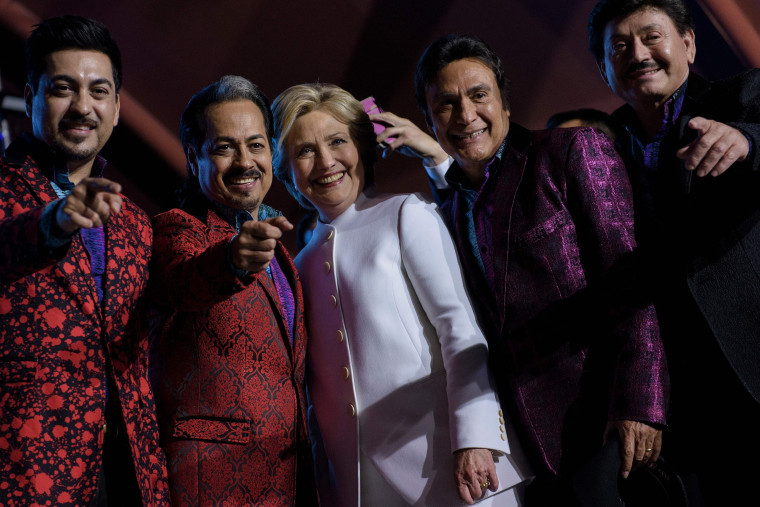So much for machismo.
You’ve been hearing of the women who voted for Donald Trump, but here’s something you aren’t hearing much about: Latino men voted overwhelmingly for Hillary Clinton.
According to Latino Decisions’ election eve polling of high-propensity Latino voters, 71 percent of Latino men voted for Clinton. In national exit polls, the number of Hispanic men who voted for the Democratic nominee was 62 percent.
That’s not as high as Latinas (women), 86 percent of whom backed Clinton in the Latino Decisions poll and 68 percent in national exit polls.
But Latino men's votes for Clinton are much higher than white men: only 31 percent of white men voted for Clinton, whereas 63 percent voted for Donald Trump.
An even higher share of Latino men in Nevada, 76 percent, voted for Catherine Cortez-Masto to be the state's senator, helping her defeat her male challenger Rep. Joe Heck, the Republican in the race.
The huge support for Clinton defies the macho male stereotype often associated with Latinos. The negative stereotype usually connotes an image of a sexist, dominant male full of bravado and perhaps sexually aggressive.
“Machismo is a stereotype that does not allow us to see the diversity of masculinities in different communities,” said Aída Hurtado, a professor of psychology at the University of California, Santa Cruz who specializes in gender equity. She co-authored “Beyond Machismo” that was released in March.
Certainly Latinos are more likely to vote Democrat and consider the Democratic Party more likely to care about issues of concern to Latinos, according to polling. But at the least, the election results show Latino men were willing to put aside gender to consider which party or candidate might best serve them, their family and/or their community.
The stereotype of machismo tends to apply to Latino men, yet it “does make us blind to how male privilege is consistent across different cultures," said Hurtado.
As an example, she point to Trump himself. “If you look at the rhetoric the president-elect has used about women, it is the archetype of machismo,” yet he wasn’t called a machista (male chauvinist),” she said.
Hurtado has conducted surveys of young male Latinos who had schooling beyond high school and asked how they defined manhood and who were men they admired.
None mentioned machismo as defined by the stereotype and many identified male family members who they admired for characteristics such as being open hearted, helping the family and being honest people.
In her own family, said Hurtado, she can point to her father, who gave his daughters the resources to go to school and encouraged them to get better educations without regard to gender.
Related: Exit Polls: NBC News' Analysis of 2016 Votes and Voters
Hurtado said Latino men's votes for Clinton could also be seen in a different light, apart from politics.
“Most men have incredible respect for their mothers and grandmothers; it would make sense, Hillary Clinton being older and having cast herself as an elder — she said I’m a grandmother —that there would be room to think of her as a leader,” Hurtado said. “If you only think of (the stereotype) machismo, you would never catch that.”

